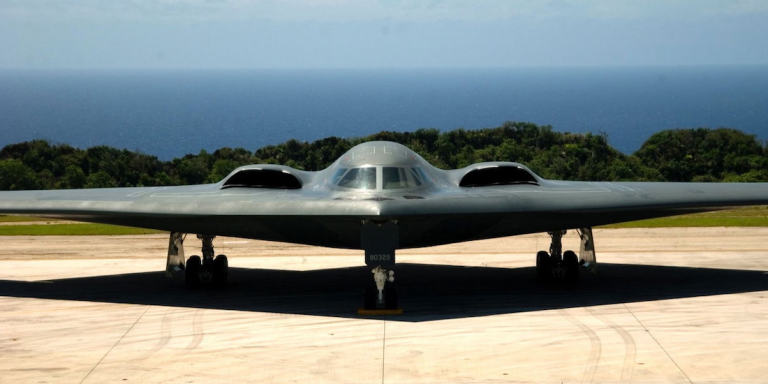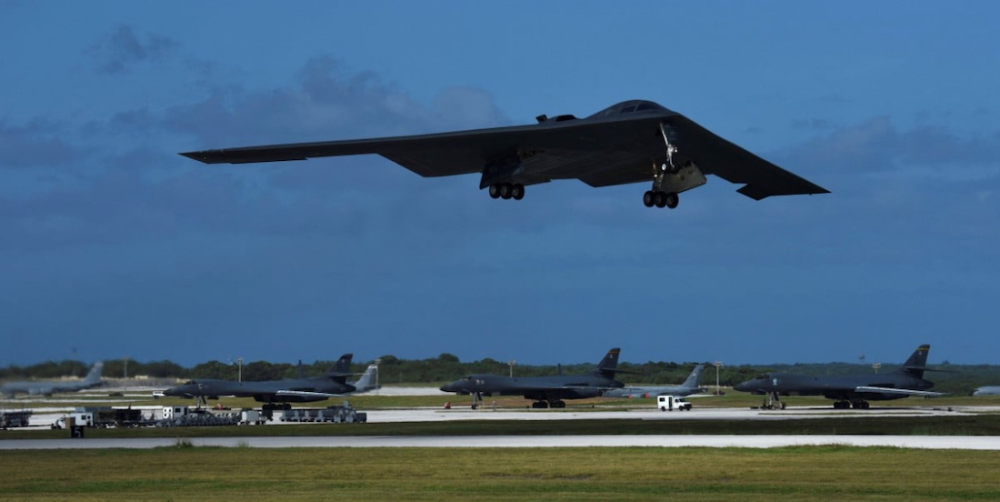
New York, N.Y. – In a historic display of military precision, U.S. B-2 Spirit stealth bombers executed a covert operation, code-named “Operation Midnight Hammer,” targeting Iranian nuclear facilities. Departing from Whiteman Air Force Base in Missouri, these advanced aircraft flew non-stop to deliver GBU-57 Massive Ordnance Penetrator bombs, showcasing America’s unparalleled global reach.
According to a June 22, 2025, report by ABC News, the mission marked the first combat use of these “bunker-buster” bombs, designed to penetrate deeply buried targets like Iran’s Fordo uranium enrichment plant.
U.S. Stealth Bombers Strike Iran
B-2 Bombers Fly Non-Stop from Missouri to Target Iran’s Nuclear Sites
The B-2 Spirit, a subsonic stealth bomber capable of evading advanced air defenses, took off from Whiteman Air Force Base at midnight on June 21, 2025. ABC News reported that seven B-2s, each carrying two GBU-57 bombs, flew eastward to the Middle East, supported by 125 aircraft, including fighter jets and refueling planes. The mission, described as the largest B-2 operation in U.S. history, targeted Fordo, Natanz, and Isfahan, Iran’s key nuclear sites. Defense Secretary Pete Hegseth stated, “No other country on planet earth could have pulled off the operation,” emphasizing the mission’s precision and secrecy.
The GBU-57, weighing 30,000 pounds, is engineered to penetrate up to 200 feet of earth or 60 feet of concrete before detonating. ABC News noted that Fordo, buried 300 feet under a mountain, was the primary target due to its role in Iran’s uranium enrichment program. Satellite imagery from Maxar Technologies revealed six craters and debris at Fordo, indicating significant damage, though Iranian officials claimed the facility was evacuated beforehand.
Strategic Deception and Execution
Decoy Bombers and Stealth Tactics Ensured Mission Success
To maintain secrecy, the U.S. employed deceptive tactics. A group of B-2s flew west toward Guam, drawing attention from global observers, while the strike force headed east. General Dan Caine, Chairman of the Joint Chiefs of Staff, told ABC News, “We maintained the element of surprise.” The bombers entered Iranian airspace undetected, supported by Israeli airstrikes that had weakened Iran’s air defenses. At 2:10 a.m. local time, the lead B-2 dropped its GBU-57s on Fordo, followed by 14 bombs across Fordo and Natanz over 25 minutes. A U.S. submarine launched 30 Tomahawk cruise missiles at Isfahan, completing the coordinated assault.
President Donald Trump announced the strikes on Truth Social, claiming, “Iran’s key nuclear enrichment facilities have been completely and totally obliterated.” However, General Caine cautioned that a full battle damage assessment was ongoing, noting uncertainty about whether Iran had relocated enriched uranium to undisclosed sites.
International Repercussions
Global Leaders Urge Restraint Amid Escalating Tensions
The strikes intensified the Israel-Iran conflict, prompting varied international responses. Israeli Prime Minister Benjamin Netanyahu praised the operation, stating, “Iran was close to producing a bomb.” Iran’s Atomic Energy Organization condemned the attack as a “barbaric violation” of international law, asserting no radiological contamination occurred. U.N. nuclear watchdog head Rafael Grossi warned of potential radioactive risks, urging “maximum restraint” to avoid further escalation.
ABC News reported that European diplomats, including British, French, and German foreign ministers, planned to meet with Iranian counterparts to de-escalate tensions. Iran threatened retaliation, with potential targets including U.S. bases in Qatar and Israel. Senator Roger Wicker supported the strikes, arguing, “Iran made the choice to pursue a nuclear weapon.” Conversely, Senator Tim Kaine criticized Trump for acting without Congressional approval, reflecting domestic divisions.

Long-Term Implications
Can Iran’s Nuclear Program Be Permanently Halted?
Analysts question whether the strikes will permanently disrupt Iran’s nuclear ambitions. ABC News cited experts who argue that while Fordo sustained severe damage, Iran’s scientific expertise remains intact. Aaron David Miller of the Carnegie Endowment noted, “How do you bomb scientific knowledge out of a scientific community?” Estimates suggest the strikes may delay Iran’s program by one to two years, but reconstitution remains possible.
The operation underscores the U.S.’s unique military capabilities, with the B-2 and GBU-57 exclusive to its arsenal. ABC News highlighted that Israel, lacking heavy bombers, relied on U.S. support to target Fordo. The mission’s success reinforces American deterrence, as Hegseth declared, “When this president speaks, the world should listen.”